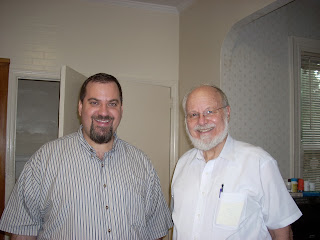Observadox
I was discussing the term "Orthoprax" over on Sefer Hapanim and how I dislike it. It implies people that secretly disbelieve in all religion, but only stay publicly religious for social reasons or fear of condemnation. Because of simplistic thinking, many frum Jews place anyone who doesn't adhere to the Maimonidean dogma in the category of "orthoprax", and assume that those like myself who don't believe in a literal Torah MiSinai must all be secretly irreligious.
A more fitting term might be "Observadox"
A more fitting term might be "Observadox"

It seems like you'd like to distinguish between nonbelieving people who enjoy and benefit from observance, and those who don't and wish they could stop observing altogether. Fair enough, but I don't think that all nonbelieving-and-practicing people can be placed neatly into one of those categories. A lot are probably in one box one day and the other box the next.
ReplyDeleteThat might be the case wth some, but I think most people stick with their particular point of emotional connection to religion, rather than changing their perspective from day to day (even if they might waffle on details).
DeleteWhen I say "benefit", I mean "find value and meaning".
ReplyDeleteObservadox... not bad!
ReplyDeleteSorry, but I don't like it.
ReplyDeleteThe word "orthodox" derives from the Greek: orthos = straight, doxa = notion. In other words, an orthodox person has correct notions or beliefs.
The word "orthoprax" derives from: "orthos" = straight, "praxis" = action, i.e. one whose actions are correct. To be sure, there is something a bit strange about Orthoprax Jews using this term, as I suspect many would question if their actions are actually "straight", i.e. THE right way of going about things. It makes more sense when "Orthodox" people use the term when referring to others who, although they may not not "believe correctly", still "practice correctly".
The word "observe" derives from the Latin: observare = watch over, follow. "Observadox" would then mean: "one who observes a belief". That's not the idea we want to get across (aside from mixing our Greek and Latin)!